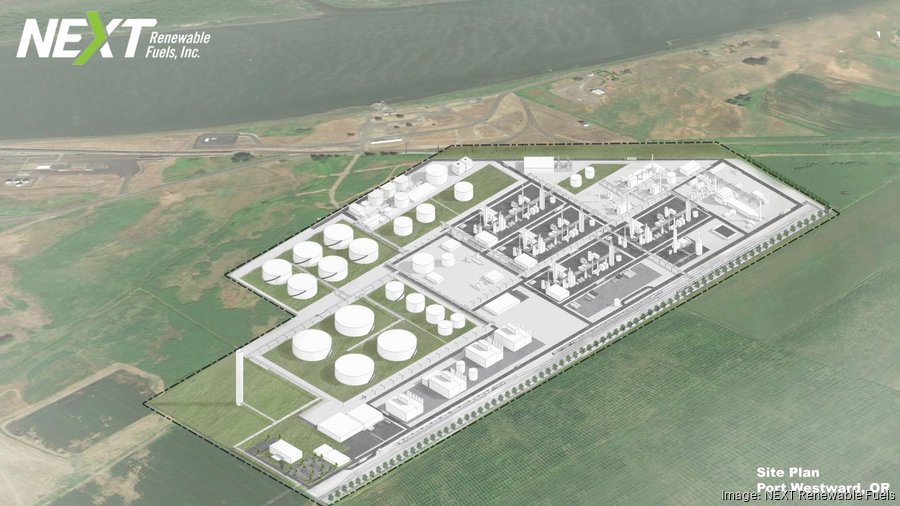Listen to this article 2 min
A proposed $2 billion Columbia County biofuels refinery project opposed by two major Oregon conservation groups has cleared another regulatory hurdle.
Oregon’s Department of Environmental Quality approved an air quality permit for the Next Renewable Fuels Inc. project at Port Westward Industrial Park on the Columbia River outside Clatskanie.
The project has received county land use approvals and a Department of State Lands removal fill permit. It’s awaiting an environmental impact statement from the Army Corps of Engineers.
Renewable fuels are a big part of Oregon’s decarbonization strategy, encouraged through the Clean Fuels Program and the new Climate Protection Program, and Next has pitched the Port Westward refinery as a provider of homegrown clean fuels and green-industry jobs.
The plant would employ 240 people producing renewable diesel, renewable naphtha (a petrochemical feedstock) and sustainable aviation fuel using cooking oils, animal tallows, seed oils and waste grease as feedstock.
“It’s imperative that we transition away from fossil fuels towards a cleaner fuels economy as quickly as possible,” Chris Efird, Next CEO and chairperson, said in a statement. “Our project accelerates green job creation and helps Oregon reach its aggressive decarbonization goals.”
Columbia Riverkeeper, 1000 Friends of Oregon and local farmers have led the fight against the project. They say they back renewable fuels but are concerned about an increased flooding hazard and agricultural damage from the 116 acres of wetland that could be affected by construction of the refinery and a 4.7-mile branch rail line. They've taken the county approvals to the Land Use Board of Appeals.
Riverkeeper also charges the refinery could cause air-quality issues as volatile organic compound emissions contribute to the formation of ground-level ozone, the main ingredient in smog.
“The proposed refinery would pose a major pollution risk for the Port Westward community as well as those downwind and downstream from the refinery and rail yard,” Dan Serres, conservation director for Columbia Riverkeeper, said in a statement. “DEQ should think twice about approving a polluting refinery — with major spill risks and air emissions — in the Columbia River Estuary.”
Responding to filed comments, DEQ said the permit requires Next to perform stack testing for volatile organic compounds.
DEQ said it received nearly 7,000 comments on the project, including “numerous” objecting to the refinery location. The agency offered this official response to that category of comments:
Where industrial facilities are allowed to locate is a zoning issue and not within DEQ jurisdiction. DEQ received a Land Use Compatibility Statement from Columbia County that allows this type of operation to be located at the current site. DEQ does not have the authority to choose which types of projects are appropriate for economic development in an area; DEQ evaluates the air emissions for the type of activity or activities proposed for a certain facility and, when a facility can meet all applicable requirements in current environmental law, DEQ will issue a permit and continue to monitor the facility for ongoing compliance. In addition, NEXT has satisfied strict Cleaner Air Oregon permitting requirements for new facilities, demonstrating that its toxic air contaminant emissions will not create unacceptable risk in the area where it will operate.
